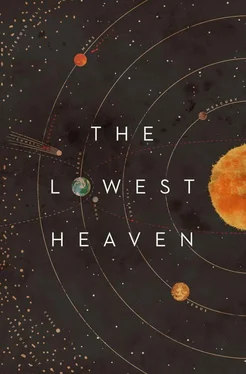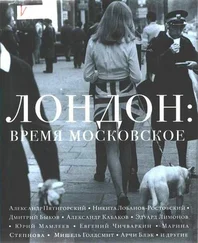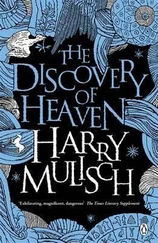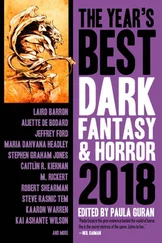This used to be proper fields; that’s what we remember. It gets fuzzier, week by week, so we tell stories about what it used to be like, but they change. You can hear it happen if you pay attention: a yellow becomes a burned golden colour when we tell the stories. We always try and embellish our own stories, because that makes the now worse. We should be trying to make this better but we don’t really have an interest in that. We like dwelling on the past. Now, everything is dismal. But remember when all of this was green? Remember when the fields grew corn and wheat and whatever that beautiful burned golden stuff was? Wasn’t that time amazing?
The bike whines under my weight, but that’s fine. I am not built for this sort of machine, which I accept. I look lumbering on top of it: hunched over, clenching the rubber-grip handlebars, my back arched, my legs pumping. My knees hit my elbows if I am cycling even slightly up-hill. We used to have a mountain bike, but that went missing. Wasn’t a problem: it was too heavy to carry back if something broke. The frame on this one is light, and you can hear echoes through it when stones hit the metal. They make the GPS voice shiver. We were amazed when we discovered that GPS still worked. The satellites are still up there, that’s why, we reckon: still spinning, in orbit of us. As long as we charge the VDUs on the solar racks down here, we get a few hours use out of them. Of course, they refer to roads that no longer exist; whole towns and cities, in fact. You are now entering London , it might say. No I’m not, I might reply. Maybe I would have been once upon a whenever.
Prepare to turn left , the voice says. I have set it to be the voice of a woman called Jane. She has a hint of an Irish accent, or somewhere from the north: Liverpool, Manchester. I’ve never been up that far north, so I can’t tell which. I don’t even know if they still talk like that up there. Also, she’s pretending that she’s posh. It’s something that actors used to do, I’m told. I talk back to her, imitating her voice a little. It’s playful teasing.
“There is no left,” I say to her. “There’s only an over. I can veer, though.” Through the makeshift helmet, my voice is muffled. I miss the road turning that she wanted me to take because it doesn’t exist, and she tries to readjust, finding me in a no-man’s land of space on her screen. Recalculating , she says, and then, just when she thinks she might have found it, Recalculating , again. Where I am now, there were houses once. I can see the lines in the ground, the foundations; the lines of walls and doors and entire lives.
I keep going. There are the fragments of roads, but I avoid them, because here they’re too broken up; and the occasional jut of a power cable or telephone mast, sticking out of the ground as if this is a pincushion.
I pedal harder. Doesn’t matter how much I sweat. Go left on the roundabout , Jane says, but that’s when you can hear her accent most: rind-a-bite , she says.
I pass a supermarket that I haven’t seen before. It’s shelled, mostly, but there is a section with a roof, and most of the walls are here, and the doors. We never hold out hope, because there’s a chance that anything left is either contaminated or just useless, but we always check. I park next to it and creep inside, and I hear their voices echoing down the aisles before I see them, which is lucky. We are not always so lucky. I back out: I have no wish to fuck my day up like that. No way, no how.
The bike groans again when I get onto it, and Jane threatens to ruin everything when she tells me that she is Recalculating , but they don’t hear her, I don’t think; and I am long gone by the time that they might be coming out to see what that noise was.
The bike’s front wheel snags on a rock, and I come off. On the dust, the gravel, I clutch at my knee and I check the suit. That would be a worry, if I had ripped it and cut myself; if there was an open wound for infection to set in. But there isn’t. It’s dusty and dirty but that’s all.
Used to be grazed knees and whatever. Get up, carry on. Other concerns, now. Back onto the bike, and I have lost a few minutes, and my knee hurts, so I pedal slower for a while. They say, don’t stay out more than two hours. I can’t see me being back in time. I wonder what will happen to me.
The harvest is metal, whatever it is. I can see that from here. And it’s on fire, which doesn’t bode well. We can’t put it out, so we leave it to burn off and then pick through what’s left. Some of the people at camp, they think that fire has started to burn hotter than it used to. They blame whatever’s in the air now for that: makes it harder to put out, makes it nastier. It’ll melt through anything, like white phosphorous. I haven’t seen that happening, but I’ve seen the evidence: the puddles of dull silver that used to be household appliances, now smelted to the ground. When I was a kid, we stuck a coin to the floor in the shopping centre with superglue and watched people try to pick it up. Funniest day. That’s what they remind me of.
As I get closer I see the satellite dish, like we’ve got fastened to the sides of houses, but much larger. It’s on a base, cylindrical, covered in these gold reflective panels, glinting the sun back at me, even through the smoke; and there are these giant things sticking out of it, like spider’s legs, so long, cracked and bent and twisted on the ground. The whole thing is damaged and battered. It must have fallen from the sky; only explanation. The heat from it comes surging at me in waves. There’s a hatch swinging open through the flames, but I cannot see inside it. What if this is a person? What if there’s somebody in there? Maybe they were up in space before, and this is their return.
Ten feet away and I jump off the bike, and I rush towards the fallen harvest. I throw myself at it, hoping to salvage something. I’ve come this far. I look away from the flames and get close enough that I can feel them, and I reach into the hatch. I am breaking, and I realise how unsecure my suit is: the smoke, whatever’s burning here coming into the mask. I breathe it into my lungs, and it covers my skin. Still, I am here now. I fumble, feeling wires and wires and a box, which I grab and tug out. It’s black, and hot, and melting. I take it and back off, but it’s too hot so I throw it ahead of me. The gloves are on fire, so I peel them off as well. My hands are going to fry, I know, but it’s that or burn. We can’t deal with fire burns properly, and an infection would kill me. I risk it and drop them behind me, and they are swallowed by their own flames.
The box has broken in front of me. There, in the heat, I pick up the bits from inside it and see what they’re worth. Nothing: photographs; bits of paper so charred I can’t make them out; and a golden disc as wide as my forearm. It catches the sun and the fire both, and it’s somehow cold. Not freezing, but cold. It gives me a shock when I touch it, static; as if it were a pin, and I have pricked myself on it. I tuck it inside my suit, opening the zip to slide it in and make it safe. There’s nothing else. In the distance, whatever the satellite-thing was, it is engulfed: the flames rushing out like thick red fingers clawing at the dirt.
Paul went to school here; that’s how we knew to find it. The school had tunnels underneath, running all the way through. Emergency tunnels, escape tunnels. He said that they used them during the wars before, when they needed to. That’s how old the school is. It was perfect. But there are things we could moan about: how dark it is; how damp; how tight the tunnels are. I am always close to somebody, even though they are so long. You hear things as well: echoes. It’s scarier than it need be. Almost all of us are young. We were quickest getting down here, to start. We were lucky. Maybe, because we’re younger, we fight off whatever’s out there better. Or maybe this is just how it’s meant to be: the young outlive the old, that’s nature’s law.
Читать дальше












